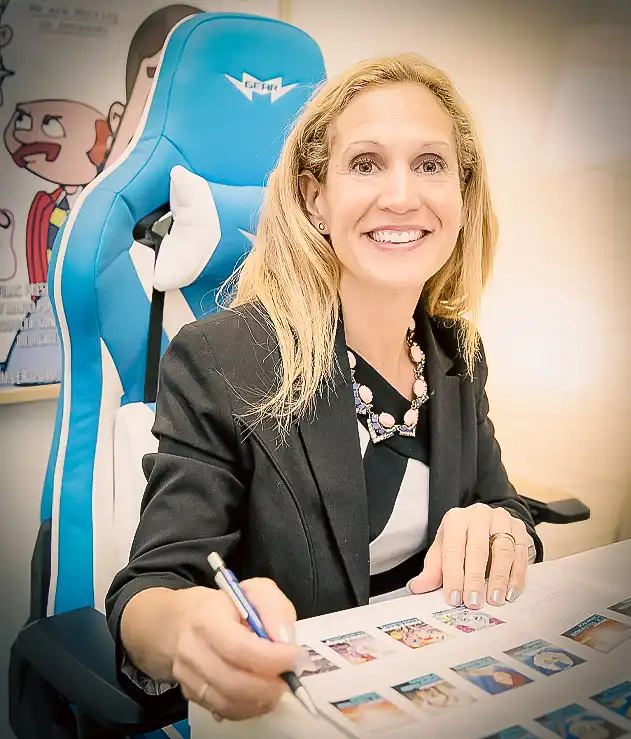 Image: IconsX (Motion Array)
Image: IconsX (Motion Array)
Author: VANAS
How to Become an Animation Director?
Table of Contents
- Understanding Animation Departments
- Mastering Storytelling and Humor
- Motivating and Exciting Your Team
- Staying Organized and Focused
- Studying Various Types of Movies
- Learning from Great Directors
- Starting Small Before Going Big
- Frequently Asked Questions
At VANAS Online Animation School, we prepare students for successful careers in Animation, Visual Effects, and Video Game programs. To launch your career, visit VANAS.
Understanding Animation Departments
To become an animation director, it's essential to understand the various departments involved in the animation process. Each department plays a unique role in bringing an animated project to life.
1. Storyboard Artists: They create the visual plan for the animation, sketching out each scene and determining the flow of the story. Their work helps everyone visualize the end product and guides the animation team.
2. Character Designers: These artists are responsible for creating the look and personality of characters. They ensure characters are expressive and fit within the animation's style.
3. Background Artists: They design the environments in which characters live and interact. Their work sets the mood and context for the animation.
4. Animators: Animators bring characters and scenes to life through movement. They ensure that characters move and act in ways that fit their personalities and the story.
5. Technical Directors: They handle the technical aspects of animation, such as software tools, rendering, and integrating various elements of the animation into a cohesive whole.
6. Sound Designers and Composers: These professionals create the auditory elements of animation. Sound effects and music enhance the viewing experience and help convey emotions.
Understanding these departments helps an animation director make informed decisions and effectively manage the production process. It also allows you to communicate clearly with each team and ensure that all aspects of the animation align with the overall vision.
Mastering Storytelling and Humor
One of the core responsibilities of an animation director is to craft engaging and entertaining stories.
1. Develop Strong Storytelling Skills: Great animation directors are also great storytellers. Learn how to structure a story with a clear beginning, middle, and end. Your story should have compelling characters, interesting conflicts, and satisfying resolutions.
2. Recognize What is Funny and Entertaining: Humor plays a significant role in animation. Being able to identify what makes something funny or entertaining is crucial. Study successful animated films and series to understand different types of humor and how they are executed.
3. Create Emotional Connections: Your animation should resonate with audiences on an emotional level. Whether it's joy, sadness, or excitement, effective storytelling involves creating moments that connect with viewers.
Motivating and Exciting Your Team
An animation director must inspire and lead their team effectively. Motivating your team ensures that everyone is invested in bringing your vision to life.
1. Communicate Your Vision: Clearly convey your creative vision and objectives to your team. When everyone understands the goal, they are more likely to contribute their best work.
2. Encourage Creativity: Allow your team members to contribute their ideas and creativity. Animation is a collaborative process, and input from various artists can enhance the final product.
3. Provide Constructive Feedback: Offer feedback that helps your team grow and improve. Recognize their efforts and provide guidance on how to enhance their work.
4. Foster a Positive Work Environment: Create an environment where team members feel valued and motivated. A positive atmosphere can boost creativity and productivity.
Staying Organized and Focused
Being organized and focused is essential for an animation director. Managing schedules and budgets effectively ensures that the project stays on track.
1. Develop a Detailed Schedule: Plan out each phase of the animation process, from pre-production to final rendering. A detailed schedule helps keep everyone on track and prevents delays.
2. Monitor the Budget: Keep track of expenses and ensure that the project stays within budget. Effective budget management prevents cost overruns and helps maintain financial control.
3. Prioritize Tasks: Identify and prioritize key tasks to ensure that critical aspects of the project are completed on time. Use project management tools to keep track of progress.
4. Address Issues Promptly: Be proactive in identifying and addressing any issues that arise. Quick resolution of problems prevents them from escalating and affecting the project timeline.
Studying Various Types of Movies
To become a well-rounded animation director, study different types of movies from various time periods.
1. Analyze Classic Films: Watch classic animated films to understand foundational techniques and storytelling methods. Films from different eras can provide valuable insights into the evolution of animation.
2. Explore Different Genres: Study animations from various genres, such as action, comedy, drama, and fantasy. Understanding diverse genres helps you develop a versatile approach to animation.
3. Observe Different Styles: Analyze animations with different visual styles and techniques. Observing various styles can inspire your creativity and help you develop your unique artistic vision.
Learning from Great Directors
Learning from experienced directors provides valuable insights and guidance for your own career.
1. Study Their Work: Watch and analyze films directed by renowned animation directors. Pay attention to their storytelling techniques, visual styles, and how they handle various aspects of animation.
2. Read Interviews and Articles: Find interviews and articles about successful directors. Their experiences and advice can offer practical tips and inspiration for your own journey.
3. Attend Workshops and Seminars: Participate in workshops and seminars led by accomplished directors. These events provide opportunities for hands-on learning and networking with industry professionals.
Starting Small Before Going Big
Gaining experience through smaller projects before tackling larger ones is crucial for building your skills and reputation.
1. Work on Short Films: Begin by directing short animated films. Short projects allow you to experiment with different techniques and storytelling approaches.
2. Take on Commercials: Working on commercials provides experience in delivering a message within a limited timeframe. It helps you develop efficiency and creativity.
3. Build a Portfolio: As you gain experience, compile a portfolio showcasing your best work. A strong portfolio demonstrates your abilities and attracts potential collaborators and employers.
4. Network with Industry Professionals: Connect with other animators, directors, and industry professionals. Networking can lead to opportunities for collaboration and further growth in your career.
Frequently Asked Questions
How do I start my journey to becoming an animation director?
- Begin by understanding the different departments in animation, mastering storytelling and humor, and gaining experience through smaller projects. Study various types of movies and learn from experienced directors.
What skills are essential for an animation director?
- Essential skills include storytelling, humor recognition, team motivation, organization, focus, and a deep understanding of animation techniques.
How can I motivate my animation team?
- Communicate your vision clearly, encourage creativity, provide constructive feedback, and foster a positive work environment.
Why is it important to study different types of movies?
- Studying various types of movies helps you understand different storytelling techniques, visual styles, and genres, which can enhance your creative approach.
What should I do if I encounter issues during production?
- Address issues promptly, develop a detailed schedule, and monitor the budget to keep the project on track and prevent delays.
At VANAS Online Animation School, we prepare students for successful careers in Animation, Visual Effects, and Video Game programs. To launch your career, visit VANAS.







